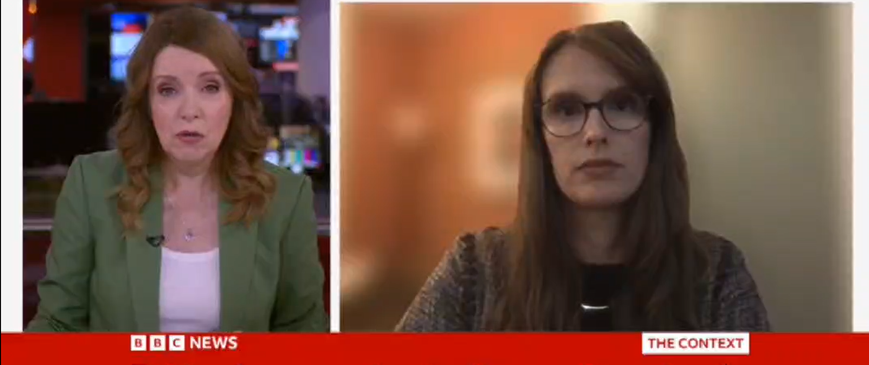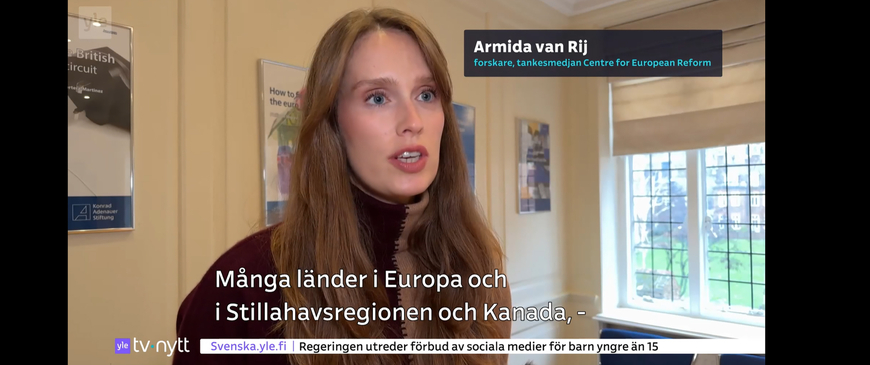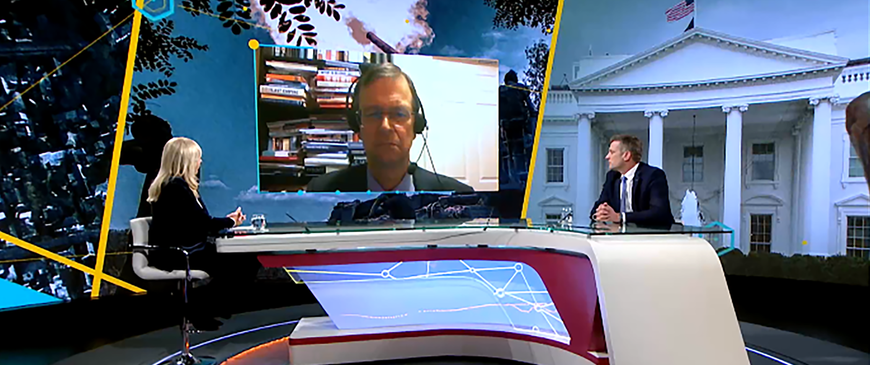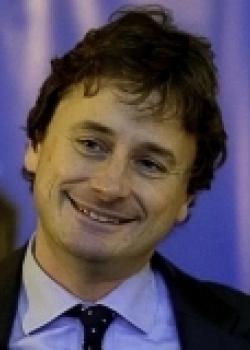Press
From love-in to brush off: Staying close is hard to do
17 November 2011
The Times
"He is rattled. France is being dragged into this crisis," said Simon Tilfordof the CER. Britain is a source of particular irritation, he suggests, because Mr Cameron and George Osborne are saying in public what the French only say in private.
Eurozone crisis: live blog
17 November 2011
Financial Times
Simon Tilford, chief economist at the CER, belives that Germany is becoming increasing isolated. "The French government, shaken by the rise in its borrowing costs, is becoming more openly critical of Germany’s refusal to support more concerted ECB action to stabilise the markets. Italy now has a prime minister with real credibility (and a background in economics); it will be harder to simply brush aside Italian concerns. And crucially, Dutch, Austrian and Finnish borrowing costs are rising now quite quickly relative to German ones.
Germany holds key to eurozone rebalancing
17 November 2011
Reuters
In a pamphlet [Why stricter rules threaten the eurozone] released last week, the CER, a think tank in London, advocated an inflation target of 3 percent with inflation allowed to deviate by 1 percentage point in each direction.
No common bond
17 November 2011
United Press International
"The Germans have been able to rely on the French, the Dutch and the Austrians. But if they get dragged into this and their borrowing costs continue to rise, that could influence whether they continue to back Germany and the line taken on the eurozone crisis," said chief economist Simon Tilford at the CER.
Atmosphere tense over confusing stance on Europe
17 November 2011
Financial Times
As Charles Grant of the CER puts it: "The risk is that Cameron will start making impossible demands. If pushed too far, Germany will go for a completely new treaty outside the EU framework. That will trigger a real crisis in the relationship."
Europe's debt crisis moves toward bigger economies
16 November 2011
National Public Radio
"Even economies that do not have the fiscal problems of some of the other eurozone economies are considered a risk, [they] are being shunned," says Simon Tilford, chief economist of the CER in London.
Widening split in Europe on the virtue of austerity
16 November 2011
The New York Times
But, said Mr Tilford, the eurozone "is going to crack unless ECB enters the picture soon." If the central bank really starts carrying out the lender of last resort function, then the crisis can still be reined in, he and others said.
Europeans have deep doubts about euro
15 November 2011
Voice of America
"If a country were to opt to leave the eurozone, the rest of the eurozone would have to make sure that process was a relatively controlled one…" said Simon Tilford, chief economist at the CER.
No stopping technocrats as Europe crisis brings down governments
15 November 2011
Bloomberg
While the appointments in Greece and Italy avoided snap elections that may have created even greater turbulence in financial markets, governments made up of non-political experts can't make up for the single currency’s flaws, said Philip Whyte at the CER . ... "There's a deep flaw in the structure of the common currency and that's not something that technocratic governments can do anything about ... Monetary union without fiscal and political union is inherently unstable."
Success and advice cast a giant as a villain, not a model, in Europe
15 November 2011
The New York Times
"The Germans often don't sufficiently appreciate how wrenching the economic changes are that they're prescribing," said Philip Whyte, a senior research fellow at the CER in London.
"El peor momento desde la II Guerra"
15 November 2011
El Pais
"Pienso que estamos en terreno muy peligroso, y que la eurozona debe actuar de inmediato", dijo Simon Tilford, economista en jefe del CER.
Path out of eurozone crisis spells prolonged economic pain
14 November 2011
Reuters
"On current policy trends, a wave of sovereign defaults and bank failures are unavoidable. Much of the currency union faces depression and deflation," wrote Simon Tilford and Philip Whyte in a new paper for the CER.
Greek, Italian plans bypass voters
14 November 2011
USA Today
"Greece has been asked to attempt the impossible," said Simon Tilford, chief economist with the CER in London. "The strategy, the fiscal austerity program over the last two years, has failed and has pushed the economy into a very deep slump. They are now being asked to take more of the medicine that has failed to treat the disease and has actually become part of the problem."
On the record
13 November 2011
The New York Times
"Not everyone can be like Germany. The world as a whole doesn't trade with the moon," said Philip Whyte of the CER, on other countries' resentment as Germany dictates austerity measures that its own robust economy does not require.
A euro break-up is hard – but not impossible
13 November 2011
The Sunday Times
It is clear that the eurozone will remain an unstable, crisis-prone arrangement unless critical steps are taken to place it on a more sustainable institutional footing," write Simon Tilford and Philp Whyte in a hard-hitting essay for the pro-EU CER.
These bailouts aren't democracy. What's worse, they aren't even a rescue
13 November 2011
The Observer
In a CER Simon Tilford and Philip Whyte said: "The punishing (and self-defeating) economic adjustments imposed on debtor countries contrasts with the self-righteous complacency shown in the creditor countries."
Even as governments act, time runs short for euro
13 November 2011
The New York Times
"I think we're in very dangerous territory, and the euro zone has to act soon," said Simon Tilford of the CER. "There isn't really a muddle-through option right now."
The bonds that tie Italy down may destroy crisis-hit euro
13 November 2011
The Irish Independent
"It is now clear that a currency shared by fiscally sovereign member-states is more vulnerable to losses of confidence than a monetary union that is more fully integrated," said the CER in a paper published last week.
Dream of United Europe frays at the edges
12 November 2011
Sydney Morning Herald
"The Greek economy is in free fall, having contracted 15 per cent under existing austerity measures", says Simon Tilford, the chief economist with the CER in London.
Lifeboats out as EU flounders
12 November 2011
The Age
The Greek economy is in free fall, having contracted 15 per cent under existing austerity measures, said Simon Tilford, chief economist with the CER in London. ... ''Its economy is three times as big as the Irish, Greek and Portuguese economies put together,'' said Mr Tilford. If Greece leaves, it will make departures by others much more likely; and if Italy left, ''France would be under huge pressure ... 'France assumes that if Greece and one or two other states left, that its status as a core part of the eurozone would be secure. But that's far from clear.








